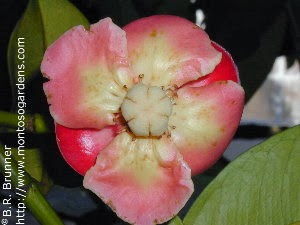Mangosteen ''Garcinia Mangostana''
The mangosteen, also called purple mangosteen, belongs to a tropical tree that is native to Indonesia. The flesh inside mangosteen is juicy, sweet, tangy and fibrous like peach. Mangosteen is acquired the majority of times by the juice as the fruit does not have a large shelf life after being removed from the tree. Frozen or dehydrated are the forms in which mangosteen appear. If mangosteen juice products include the inedible purple exocarp then an additional phytochemical value is provided by the polyphenols such as xanthonoids and tannins that offer health benefits.
Throughout the recent years, scientists have significantly examined the potential benefits that the superfood Mangosteen can potentially offer. Antioxidant content significantly confers benefits in the human body by preventing occurence of chronic diseases. Additionally, antioxidants are efficient in eliminating the consequences that arise due to free radical damage that can lead to aging, degenerative disease, and cancer. Xanthones that are found as antioxidants in the mangosteen exert a more powerful effect compared to Vitamin C and E. Heart disease, atherosclerosis, hypertension and thrombosis are some medical conditions that can be treated due to the antioxidant, anti-inflammatory, anti-thrmobotic and vasorelaxant activities of the xanthones.
Mangosteen also has antibacterial properties by inhibiting tuberculosis and staphylococcus aureus, an antibiotic resistant ''superbug'' which causes pneumonia, bone, skin and bloodstream infections.

No comments:
Post a Comment